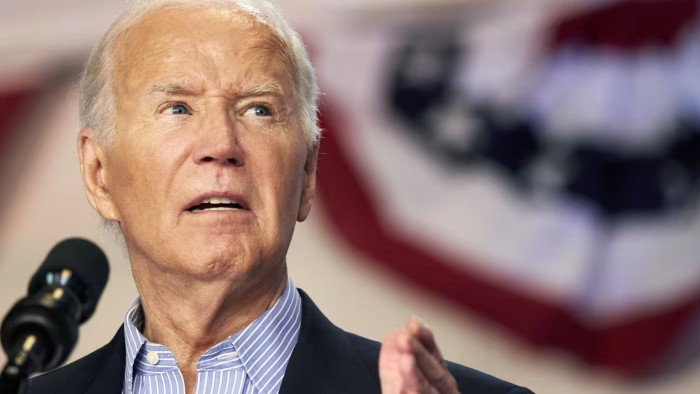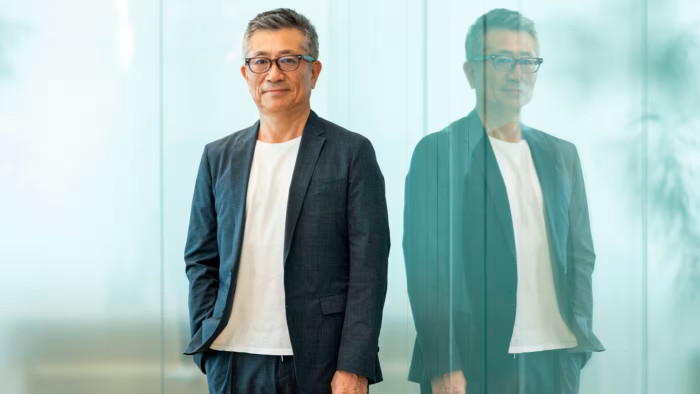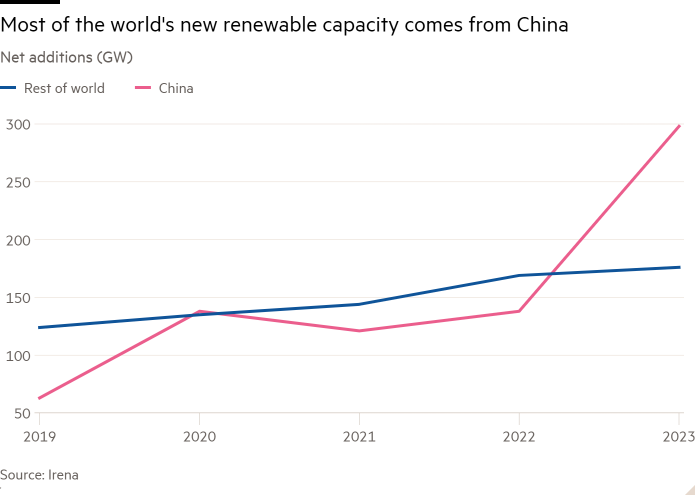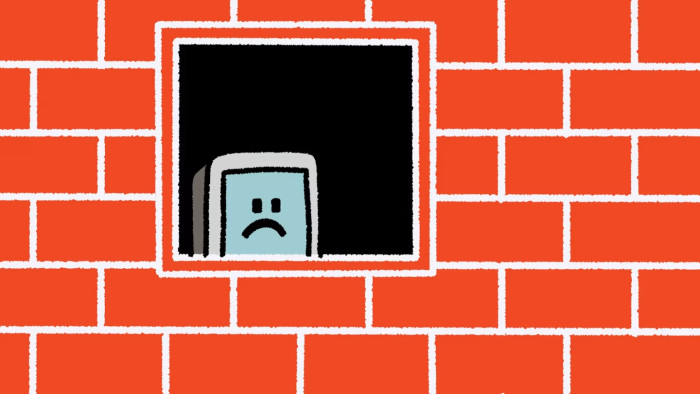

This article is an onsite version of our FirstFT newsletter. Subscribers can sign up to our Asia, Europe/Africa or Americas edition to get the newsletter delivered every weekday morning. Explore all of our newsletters here
Good morning. Today we’re covering:
-
Nippon Steel’s new hire
-
Japanese carmakers’ fears over China’s EV development
-
How to take a “digital detox”
But first we start with a historic decision out of Washington. US President Joe Biden announced on Sunday that he would drop out of the 2024 presidential race and endorse vice-president Kamala Harris, following overwhelming pressure from fellow Democrats.
“It was in the best interest of my party and the country for me to stand down,” the president announced in a letter published to social media.
The move throws this year’s White House race into turmoil with less than four months to go until voters head to the polls on November 5.
“It has been the greatest honor of my life to serve as your president,” Biden said, adding he would speak to the country “later this week in more detail about my decision.”
The president’s unprecedented decision will reverberate across the globe, adding new uncertainty into US policy and the White House’s authority on the world stage at a moment of acute geopolitical tension, from the Indo-Pacific to Gaza and Israel.
Biden’s announcement follows more than three weeks of debate among Democrats about his viability for re-election, after a disastrous debate performance against Trump reignited concerns about his mental acuity and damaged his standing among American voters. Here’s what we know so far about Biden’s decision.
And this is what I’ll be keeping an eye on today:
-
Benjamin Netanyahu: Israel’s Prime Minister Benjamin Netanyahu will meet with Biden at the White House before addressing a joint session of Congress on Wednesday.
-
Philippines: President Ferdinand Marcos Jr delivers his state of the nation address to a joint session of the country’s congress.
-
Taiwan: For the first time, Taiwan’s armed forces begin a five-day drill of combat exercises to rigorously test its warfighting capabilities.
Five more top stories
1. Nippon Steel has hired Donald Trump’s former secretary of state Mike Pompeo to help lobby for its controversial $14.9bn bid for US Steel, which has faced opposition from Republicans and Democrats.
2. The Philippines has struck a deal with China on a “provisional arrangement” for resupplying its military outpost on a disputed South China Sea reef which has become one of the region’s most dangerous flashpoints. Here’s what the deal entails.
3. Israeli jets struck several Houthi targets including energy infrastructure in the Yemeni port city of Hodeida on Saturday in response to a drone attack by Houthi militants that killed one person in Tel Aviv the day before. Read the full story.
4. Taiwan’s armed forces will use combat exercises this week to rigorously test its warfighting capabilities for the first time, in a radical departure from decades of scripted performances as the military steels itself against the growing threat from China.
5. Global cyber security watchdogs have raised the alarm over malicious websites claiming to fix glitches in the wake of one of the world’s biggest IT outages that was still causing disruption over the weekend.
Interview

Japanese carmakers are “very scared” by the rapid development of Chinese electric vehicles and risk becoming “followers” if they cannot innovate more quickly, the head of Sony-Honda’s joint venture has warned. Speaking to the FT, Yasuhide Mizuno said Japan’s companies needed to change their conservative corporate culture and called for a breakthrough in manufacturing to keep up with Chinese rivals.
We’re also reading . . .
-
The Ambani wedding: Whatever happened to the great British tradition of wealth-shaming? Jemima Kelly asks.
-
Education: Philanthropists are targeting US medical school tuition, aiming to boost diversity and career options amid rising costs for training doctors.
-
LinkedIn: LinkedIn is deploying artificial intelligence to issue career advice and has introduced games to the platform, as part of a wider overhaul.
Chart of the day

Looking at global renewables growth rates is hugely misleading, argues Brett Christophers, a professor in the Institute for Housing and Urban Research at Uppsala University. There is not one single energy transition but a series of regional transitions of widely varying form, pace and scope. The outsized materiality of one — China’s — means global figures veil more than they reveal.
Take a break from the news
Researchers first used the term “digital detox”, to refer to a period of abstention from phones and laptops, in 2012, around the same time that social media was really taking off. Rachel Connolly took a silent retreat to reboot her relationship with smartphones and social media. Here’s how it went.

Additional contributions from Tee Zhuo and Emily Goldberg
Recommended newsletters for you
One Must-Read — Remarkable journalism you won’t want to miss. Sign up here
Sort Your Financial Life Out — Learn how to make smarter money decisions and supercharge your personal finances with Claer Barrett. Sign up here